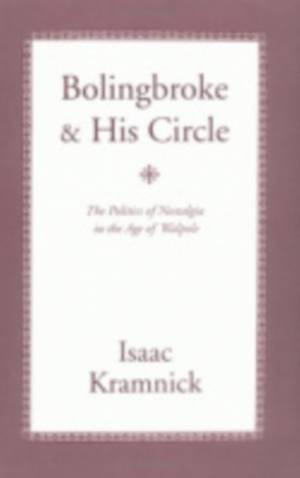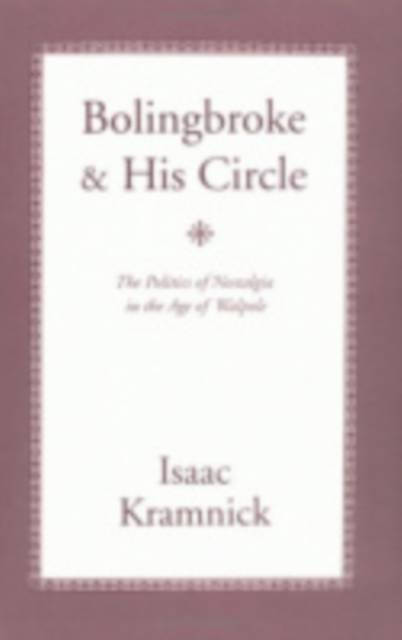
- Retrait gratuit dans votre magasin Club
- 7.000.000 titres dans notre catalogue
- Payer en toute sécurité
- Toujours un magasin près de chez vous
- Retrait gratuit dans votre magasin Club
- 7.000.000 titres dans notre catalogue
- Payer en toute sécurité
- Toujours un magasin près de chez vous
Bolingbroke and His Circle
America Versus Japan in Global Competition
Isaac KramnickDescription
"Behind this study lie two questions. Why is Bolingbroke, known primarily as a rationalist philosopher of the Enlightenment, so worshipped by English conservatives who are themselves, since Burke, so set against what the Enlightenment represents in political, social, and religious thought? The second question relates to Bolingbroke's public life. How does one explain the intense animosity between Bolingbroke and Walpole which provides the energy for English political life between 1725 and 1740? Is it mere vindictiveness, ambition, jealousy, or the inevitable reflex of the 'outsider' against the 'insider'? Or is it, as the late Victorian writers thought, their falling out at Eton which forever fated them to be protagonists?"--from the Preface.
Spécifications
Parties prenantes
- Auteur(s) :
- Editeur:
Contenu
- Nombre de pages :
- 336
- Langue:
- Anglais
Caractéristiques
- EAN:
- 9780801480010
- Date de parution :
- 19-05-92
- Format:
- Livre broché
- Format numérique:
- Trade paperback (VS)
- Dimensions :
- 154 mm x 234 mm
- Poids :
- 471 g







